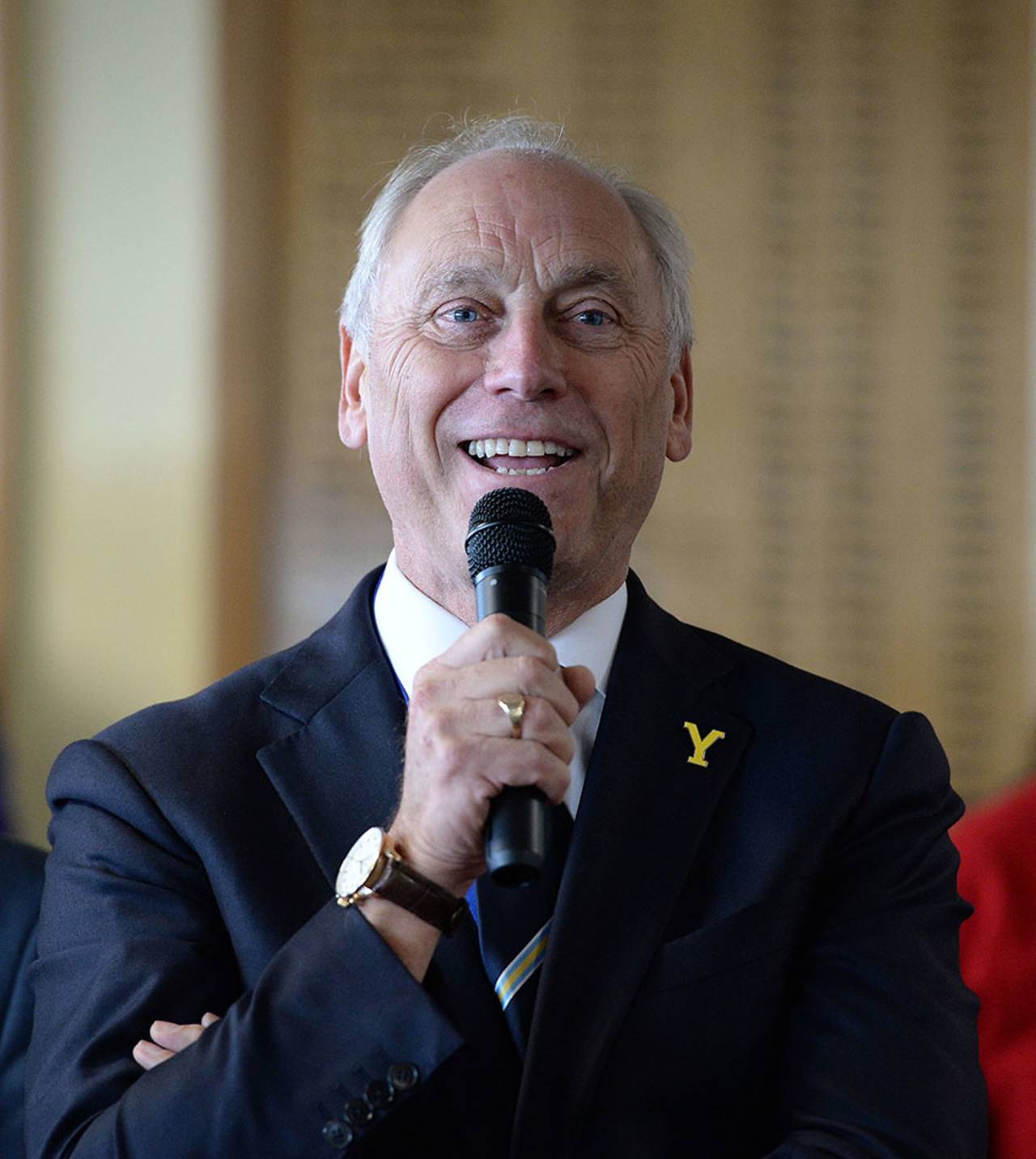Graves sets out vision to revive English cricket
Colin Graves has promised to "reclaim cricket as the national summer sport" during his tenure as chairman of the ECB
George Dobell
15-Jan-2015

Yorkshire's Colin Graves is expected to be elected as ECB chairman • PA Photos
Colin Graves has promised to "reclaim cricket as the national summer sport" during his tenure as chairman of the ECB.
Graves, the Yorkshire chairman, is almost certain to be elected unopposed to the ECB position and will lead a review of all aspects of the board's performance as his first act in charge. But at the heart of his five-year term in office will be a drive to see more cricket played in the nation's state schools and to reconnect with a public that appears to have fallen out of love with the sport.
"I want to bring life into the game," Graves told ESPNcricinfo. "I am a cricket nut and I don't want to see the sport wither. I want to make it vibrant.
"We have a fantastic opportunity to reclaim cricket as the national summer sport. We have a fantastic opportunity to make cricket better. At the end of my period as chairman - and I won't be looking for a second term, I can promise you that - I will be judged on that basis: whether I have made the game better."
Though Graves will not take position at the ECB until May - he will step down as Yorkshire chairman in March - the counties only have until January 26 to propose a rival candidate. It seems most unlikely they will do so, with the vast majority welcoming Graves' appointment.
But they should not be expecting a free ride. While Graves might broadly be described as sympathetic to the counties' position, it seems that nothing will be ruled out as he reviews the current situation. And as the man who suggested a few years ago that the County Championship could be extended to include 21 teams, he has already shown that he will not be chained to convention.
"The first thing I want to do is review everything," he said. "Everything: T20, the congestion in the schedule, our costs and our efficiency. I want to run the ECB efficiently and, after we, the executive team, have reviewed how we are operating now - and there will be no more outside reviews of the game while I'm chairman - we will announce our strategy towards the end of the year.
"I have promised nothing to the counties. I would describe myself as a cricket lover, not a traditionalist, and while the counties have generally been very successful, we have to look at what they bring into the game.
"We have to make the counties more sustainable. Whether that is 18 teams or 21 teams, let's see. The fact is, county cricket brings in very little money and costs a great deal. Obviously the counties produce the players, which is very important, but we have to look for new revenue streams."
Graves dismissed the idea that the counties would benefit from an immediate windfall. While the ECB has amassed significant reserves in recent years - believed to be in excess of £25m, although some put the figure much higher - Graves insists the money is required in the event that an international series is cancelled at short notice for any reason, as happened when West Indies pulled out of their India tour.
"It is quite clear that the business requires an insurance policy," Graves said. "The audit committee currently feels that our reserves are adequate - they would prefer to have a little more but we need that money and it cannot just be spent."
Central to Graves' strategy will be an attempt to increase participation numbers in the sport. The ECB was stung by figures released towards the end of last year which showed a drop in the number of people playing recreational cricket and Graves is adamant it is a decline that must be reversed.
"We have to get cricket back in schools," he says. "We have to get local clubs going into schools and increasing participation.
"The days when governments or schools built cricket facilities are gone forever. So we have to provide the facilities for schools to use. If that means using cricket clubs during the week when they're not needed, then let's do it.
"But yes, I want to be judged on many things and one of them is whether we can grow the participation figures. I got into cricket administration to try to make a difference. When I took over at Yorkshire, the club was bankrupt and they didn't own a blade of grass.
"I got involved then because I wanted to help. It's no different now. I want to make the game better for everyone and, at the end of five years, I'll hold up my hands and be judged by that statement."
George Dobell is a senior correspondent at ESPNcricinfo